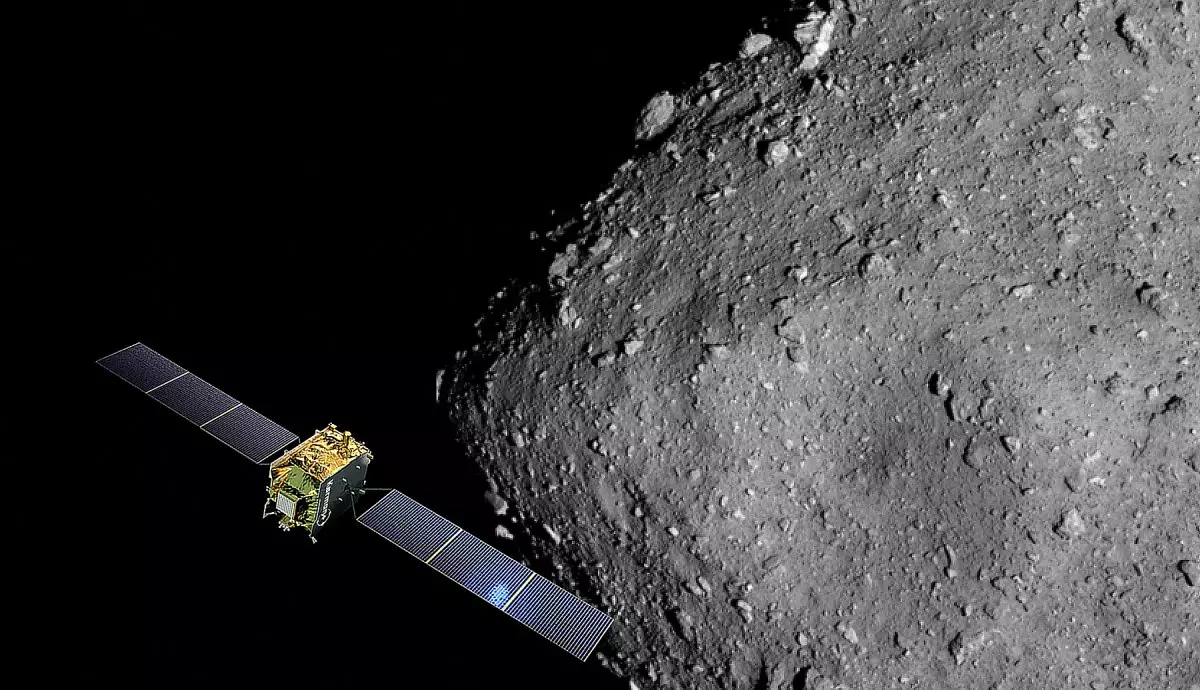As humanity stands on the brink of radical technological advancements, the allure of the cosmos has captured the imagination of innovators and investors alike. Among the many ventures exploring this uncharted territory, Karman+ stands out with its audacious goal of establishing a venture focused on asteroid mining. Recently, the startup successfully secured $20 million in seed funding, setting in motion its plans to develop the necessary hardware and software for asteroid exploration and resource extraction. This ambitious venture not only represents a significant leap into the future but also highlights the increasing focus on sustainable solutions beyond our planet.
Karman+’s mission entails constructing autonomous spacecraft that can venture into the depths of outer space, travel millions of miles to asteroids, extract valuable resources such as water and rare minerals, and then return these materials to Earth’s orbit. This undertaking may sound like a fanciful concept borrowed from science fiction narratives, yet the Karman+ team is grounded in advanced technology, believing that recent breakthroughs in science convey a promising future for such missions.
One of the standout features of Karman+’s business model is its cost efficiency. Current asteroid exploration missions often come with astronomical price tags, averaging around $1 billion per operation. In stark contrast, Karman+ aims to execute its missions with a budget of $10 million per launch. This stark reduction in cost could redefine the economics of space exploration and resource extraction. The potential market for such initiatives, particularly in terms of refueling spacecraft and extending satellite life, is estimated to be worth several billion dollars annually.
The appeal of asteroids extends beyond their immediate resources; they represent a new frontier in space manufacturing that could alleviate some of the environmental burdens faced on Earth. With the ability to harvest resources from space, humanity may gradually reduce its dependence on terrestrial mining practices that often come with ecological repercussions. This dual ethos of innovation and sustainability resonates with modern investors keen on supporting ventures that marry profitability with purpose.
Founded by Teun van den Dries and Daynan Crull, Karman+ draws upon a wealth of experience and knowledge. Van den Dries, who has a background in aerospace engineering, shifted his focus from developing software as a service (SaaS) solutions to exploring the expansive possibilities of space. His partnership with Crull, a data scientist and mission architect, forms the backbone of a team committed to reinventing how we view resource acquisition.
Reflecting on his transition, van den Dries encapsulates a fundamental sentiment: “I can either continue the SaaS optimization grind or delve into something with a transformational impact.” This realization led him to forge ahead in a domain that is often perceived as underdeveloped yet ripe with potential—a sentiment echoed by numerous startups entering the space sector.
Despite the promising vision, Karman+ faces substantial hurdles that could complicate its path to success. The complexities of developing the spacecraft are boundless, and achieving even the first phase of their ambitious roadmap requires overcoming numerous engineering challenges. While they remain optimistic, the realities of space travel have demonstrated a tendency toward unpredictability and high costs.
Moreover, reaching the asteroids themselves involves navigating intricate orbital mechanics, as these celestial bodies are in constant motion. The logistics of launching from Earth, traveling vast distances, and successfully extracting resources add layers of complexity to Karman+’s plans. The founders are acutely aware of these challenges and recognize the criticality of approaching this endeavor with a healthy dose of skepticism—a trait that investor Sten Tamkivi of Plural noted was integral in their planning.
As Karman+ gears up for its inaugural launch projected for 2027, it embodies the pioneering spirit of space exploration. If successful, it could lay the groundwork for future resource acquisition strategies that rely less on Earth-based sources and more on sustainable practices derived from the cosmos. The venture not only knocks on the door of new technological advancements but also hints at a paradigm shift in how we conceive resource extraction and utilization.
In a world faced with climate challenges and dwindling resources, Karman+ represents a blend of daredevil ambition and cautious realism. It stands testament to the idea that with the right combination of vision, technology, and prudent planning, humanity might indeed be at the threshold of a new era in space exploration and resource management. As the world watches, one cannot help but wonder what lies in store when we finally raise our gaze to the celestial bounty above us.

